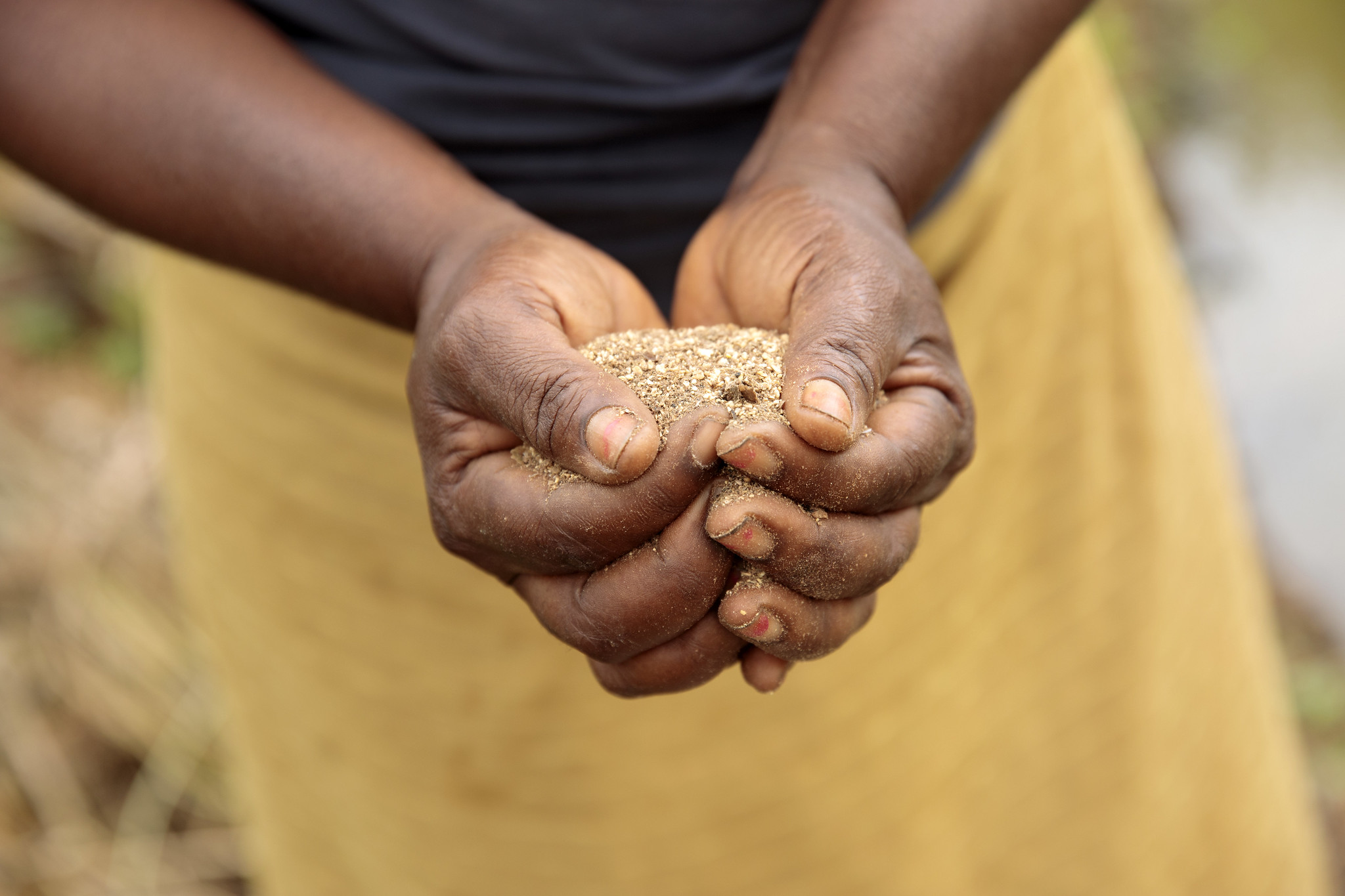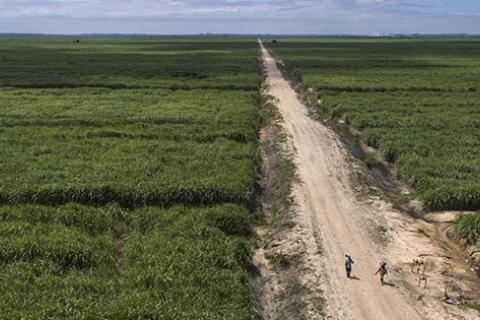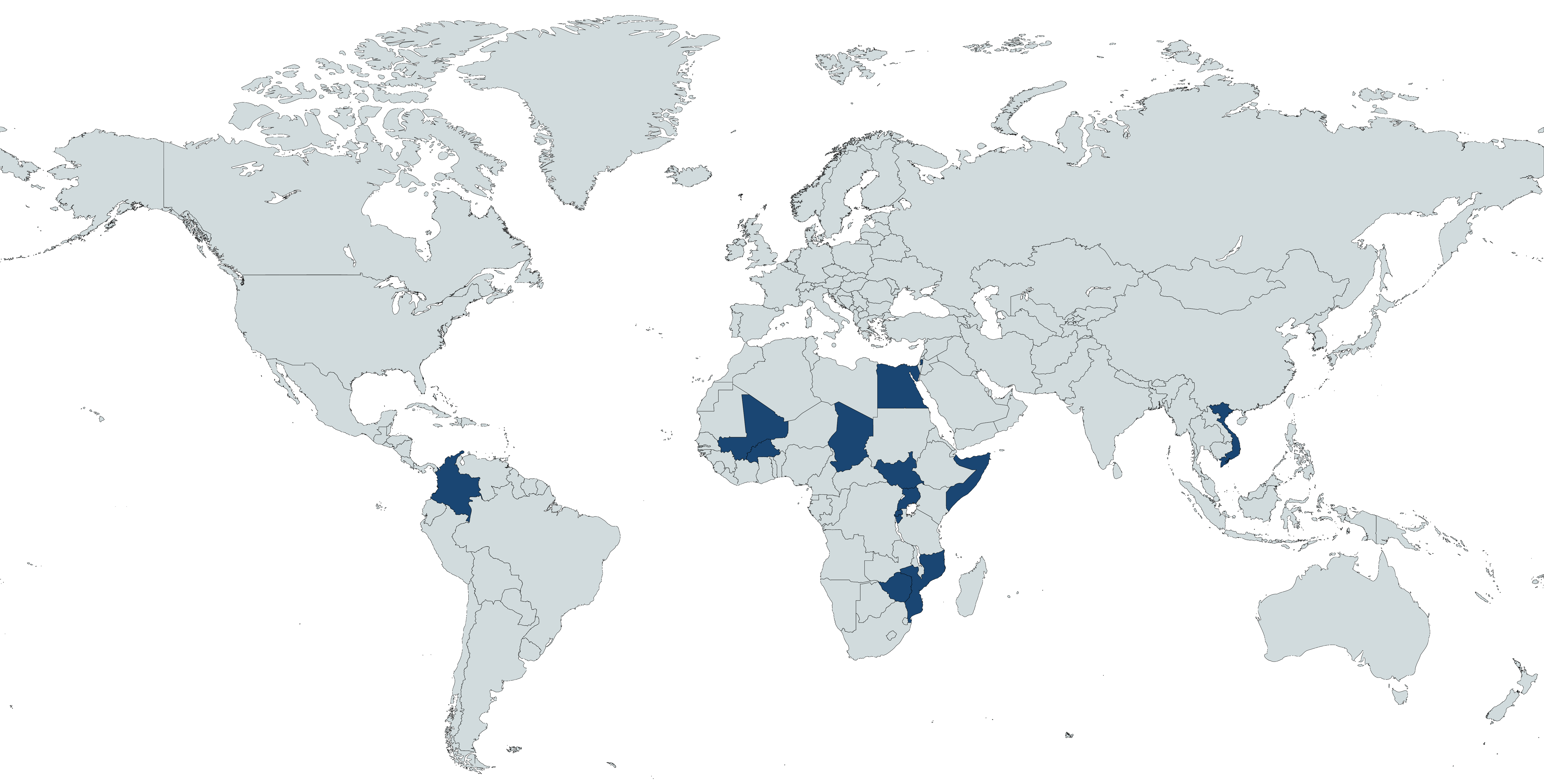Pour que les interventions en matière de gouvernance foncière soient équitables et durables, le rôle des femmes doit être activement mis en avant. Mais comment s'y prendre ? Et comment le mesurer ? Ces questions sont posées dans le cadre du programme LAND-at-scale.
LAND-at-scale, un programme de soutien à la gouvernance foncière financé par le ministère néerlandais des affaires étrangères et géré par RVO, l'agence néerlandaise pour les entreprises, a actuellement des projets en cours dans 14 pays. Les droits fonciers des femmes sont une composante essentielle de tous les projets du programme LAND-at-scale. Mais le programme ne se contente pas d'être sensible à la question du genre, il s'efforce de transformer les projets en projets de genre. Afin d'approfondir ce que cela signifie et comment appliquer et mesurer les approches transformatrices de genre dans le programme LAND-at-scale, nous avons organisé un webinaire réunissant les partenaires du projet pour discuter de la relation entre les droits fonciers des femmes et les systèmes de suivi dans les programmes fonciers.
Naomi Shadrack, experte en droits fonciers des femmes auprès d'Oxfam International et grande penseuse des approches transformatrices de genre, a prononcé un discours visionnaire, partageant son point de vue et ses expériences sur cette question. Elle a expliqué le concept de leadership transformateur de genre comme une approche visant à garantir les droits fonciers des femmes en se concentrant sur les changements structurels qui transforment les relations et les structures de pouvoir et aident les femmes à réaliser leur potentiel de leadership dans l'accès, le contrôle, la gestion et la possession de la terre et des ressources liées à la terre. Il s'agit d'un processus qui commence par un changement personnel en permettant aux praticiens de la terre de penser de manière transformatrice et de faciliter la transformation de l'architecture du pouvoir au sein des institutions afin de garantir les droits fonciers des femmes.
"Lorsque nous voulons réaliser un leadership transformateur sur les droits fonciers des femmes, nous devons savoir que les droits fonciers des femmes sont un droit humain. Les droits fonciers des femmes aident les femmes à accéder à d'autres droits tels que le droit à l'alimentation, le droit au logement, l'identité, la sécurité alimentaire, mais aussi les droits fonciers des femmes aident les femmes à obtenir l'égalité des sexes", a déclaré Naomi Shadrack.
"Le leadership transformateur pour les droits fonciers des femmes nous aide à consulter les femmes de manière significative tout au long du processus du projet. Dès le début du projet, il nous aide à respecter la dignité des personnes grâce au leadership transformateur, car nous examinons nos propres politiques et pratiques de pouvoir pour nous assurer que la manière dont nous mettons en œuvre le projet respecte la dignité des personnes avec lesquelles nous travaillons", a-t-elle souligné.
Naomi Shadrack a noté qu'une approche transformatrice de genre va au-delà des interactions entre les hommes et les femmes, et que les activités cherchent à répondre aux besoins stratégiques des femmes en matière de genre et à s'attaquer aux inégalités structurelles dans l'ensemble des programmes. Pour faciliter l'accomplissement des rôles sexospécifiques existants, les activités visent à changer les comportements et les attitudes afin de transformer la position traditionnellement occupée par les femmes, les hommes et les autres genres au sein d'un programme spécifique. Pour ce faire, des ressources sont allouées au renforcement des capacités et à l'augmentation de la représentation des femmes aux postes de direction afin d'accroître leur pouvoir de décision, le contrôle des ressources et d'atténuer les risques qui pourraient survenir.
"Le leadership transformateur pour les droits fonciers des femmes remettra en question le pouvoir et les personnes qui détiennent le pouvoir, et tout le monde ne sera pas heureux que leur pouvoir soit remis en question", a déclaré Naomi Shadrack. "L'objectif visé est de s'assurer que le pouvoir est partagé avec toutes les parties prenantes tout au long du projet et que les femmes sont aux commandes. Le leadership transformateur pour les droits fonciers des femmes est durable car ses impacts iront au-delà des projets LAND-at-scale", a-t-elle suggéré.
Le webinaire a ensuite comporté trois sessions en petits groupes, l'une réunissant les participants francophones, l'autre portant sur l'accès à la justice et la dernière sur l'administration foncière.
Le groupe francophone a déterminé que la priorité la plus importante est d'intégrer les femmes dans les organes de décision locaux et de mobiliser et sensibiliser les hommes pour qu'ils acceptent cette approche. En outre, ils ont souligné la nécessité de changer les mentalités et de développer des indicateurs de progrès mesurables pendant la période du projet pour suivre ce changement.
Le groupe qui s'est concentré sur l'accès à la justice a suggéré de mesurer le changement transformateur par le pourcentage de parties prenantes clés qui rencontrent des obstacles à la justice foncière et le pourcentage de femmes qui ont une influence sur les processus de prise de décision. Le groupe a convenu de l'importance de creuser davantage et de se concentrer sur l'agence et la voix des femmes.
Le groupe sur l'administration des terres a souligné les points communs entre les pays, tant en ce qui concerne les défis auxquels les femmes sont confrontées que la manière de les surmonter. La discrimination fondée sur le sexe est souvent liée à des normes coutumières, et il peut être difficile de remettre en cause des comportements ancrés dans une mentalité culturelle. Le gouvernement et les dirigeants locaux doivent donc agir en tant qu'alliés pour promouvoir les droits fonciers des femmes.
Les principaux enseignements de cette session sont que nous devons travailler avec les femmes et leur demander ce qu'elles veulent avant de commencer la mise en œuvre du projet. Il est essentiel de modifier les comportements pour garantir les résultats, ce qui nécessite de sensibiliser à la fois les femmes et les hommes. Enfin, trouver des moyens de mesurer le succès pendant la durée du projet reste un défi, bien que les expériences d'Oxfam fournissent des repères qui peuvent être reproduits pour le programme LAND-at-scale.




